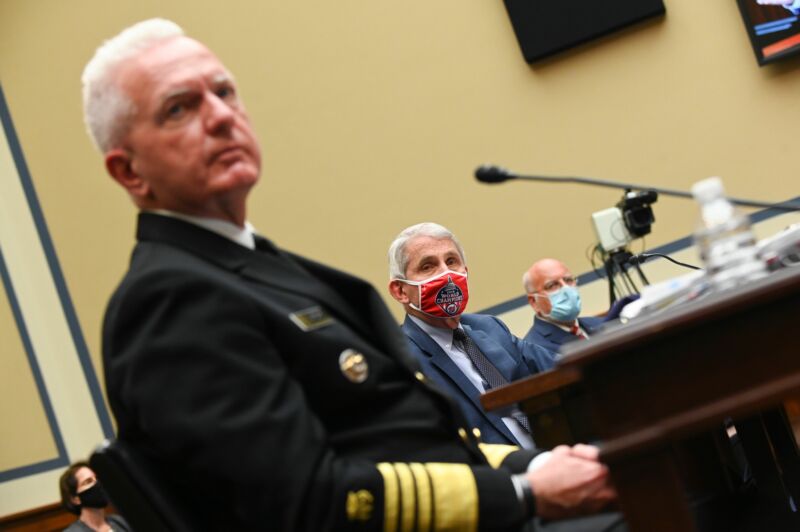
Intense backlash from medical and infectious disease experts continues over revisions to the US Centers for Disease Control and Prevention’s COVID-19 testing recommendations, which as of this week discourage testing for people who have been exposed to the virus but are not showing symptoms.
In a joint statement late Wednesday, the Infectious Diseases Society of American (IDSA) and the HIV Medicine Association (HIVMA) called for “the immediate reversal of the abrupt revision” by the CDC.
In a separate statement, Susan Bailey, president of the American Medical Association—the nation’s largest organization of doctors—called the revision to the testing guidance “a recipe for community spread and more spikes in coronavirus.”
Bailey went on to note that the CDC should provide an evidence-based rationale when it changes its guidances—which it typically does. “We urge CDC and the Department of Health and Human Services to release the scientific justification for this change in testing guidelines.”
The IDSA and HIVMA echoed the need for evidence-based guidance from the CDC but went a step further to say that the evidence does not support the CDC’s new guidance.
“Evidence has clearly indicated that asymptomatic persons play a significant role in transmissions,” the two organizations wrote. “Identifying individuals infected with COVID-19—even if they are asymptomatic—is critical to support appropriate isolation and identification of contacts, to limit spread, and to provide the data-driven, comprehensive view of community spread needed to inform effective public health responses.”Testing tussle
The statement went on to acknowledge the testing problems that have plagued the country’s response to the pandemic—shortages of supplies and limited testing capacity. But the two groups say such limitations are no excuse to change guidance. “[A]s a nation our goal should be to expand testing capacity to allow for testing of all recommended individuals, including asymptomatic people who have been exposed,” they wrote.
The two expert groups closed with a resolution to break with the CDC and continue recommending testing for asymptomatic, exposed people. “Testing asymptomatic individuals who have been exposed to a person with COVID-19 remains a critical evidence-based strategy for containing the pandemic and reducing transmission,” the statement said.
In a press briefing Wednesday, Admiral Brett Giroir—assistant secretary for health at the Department of Health and Human Services and lead for COVID-19 diagnostic testing efforts—defended the change and emphatically denied that it was made under political pressure from President Trump, who has suggested slowing national COVID-19 testing to avoid reporting large case counts. Giroir told reporters that the revisions originated with him and the CDC and were directed and approved by the experts on the White House Coronavirus Task Force.
But Anthony Fauci, director of the National Institute of Allergy and Infectious Diseases and a key expert on that task force, contradicted Giroir’s statement. In an interview with CNN, Fauci said he was undergoing surgery to remove a polyp on his vocal cord when the revisions were discussed and that he does not fully support them.
"I was under general anesthesia in the operating room and was not part of any discussion or deliberation regarding the new testing recommendations," Fauci told CNN Wednesday.
"I am concerned about the interpretation of these recommendations," Fauci said, "and worried it will give people the incorrect assumption that asymptomatic spread is not of great concern. In fact, it is."
reader comments
328